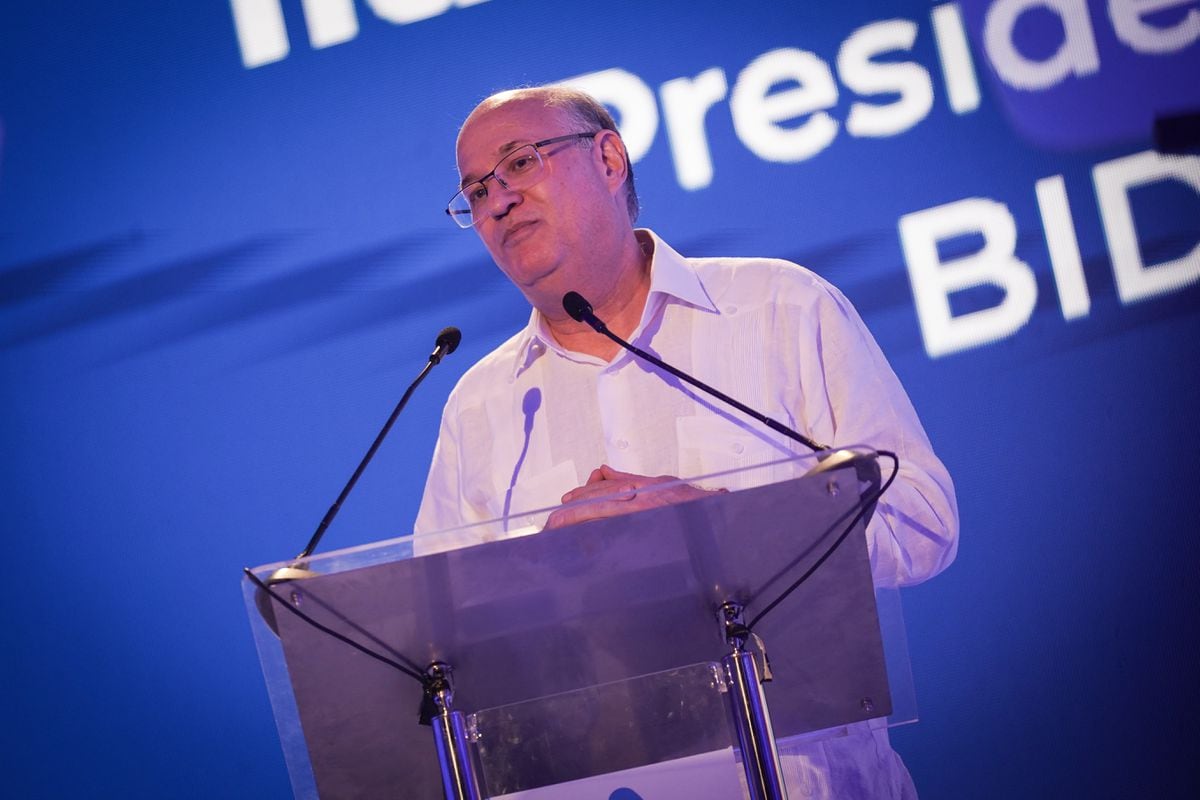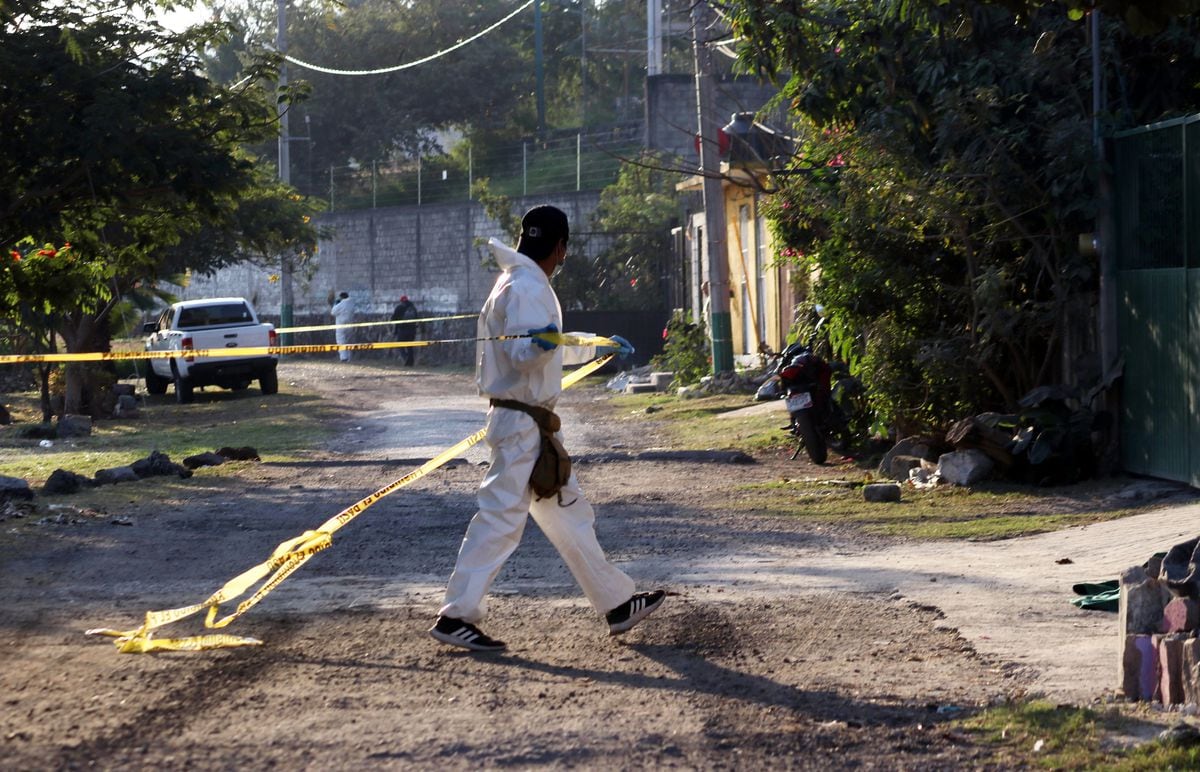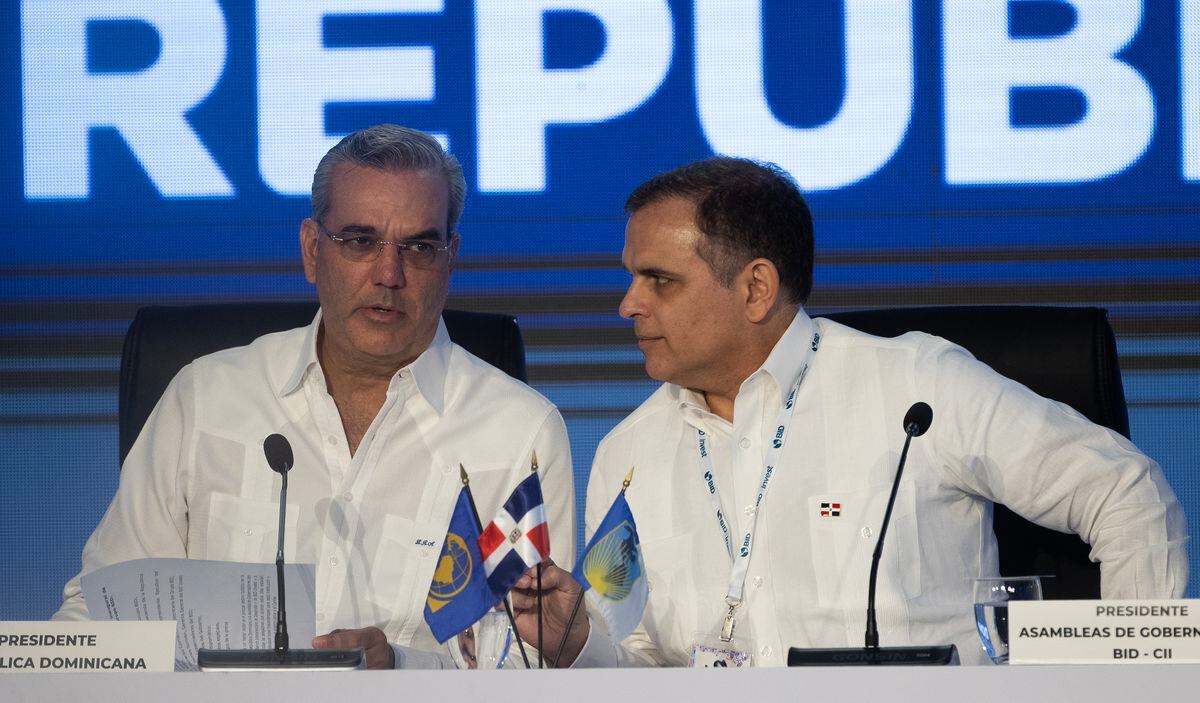The Latin American economy will have a "very low" growth this year, of only 1%, according to forecasts presented this Sunday by Eric Parrado, chief economist of the Inter-American Development Bank (IDB).
And things could be worse if the financial instability of the last few weeks continues, as that would condemn the region to stagnation.
Parrado has assured, however, that Latin American banks are solid and well capitalized, which reduces the risk of contagion.
Parrado has presented in a face-to-face and online press conference the Macroeconomic Report for Latin America and the Caribbean 2023, which is prepared annually by the IDB.
He has done so from Panama City, where the organization holds its annual assembly.
The IDB meeting is the first with Ilan Goldfajn as president after the convulsive end of Mauricio Claver Carone's stage.
Regional problems are the focus of the assembly's official agenda, but in the corridors there is much talk of the near financial crisis that has shaken the United States and Europe and that poses a threat to the world economy.
At the same time that Parrado intervened in Panama, an agreement was closed in Switzerland for the financial giant UBS to acquire its rival Credit Suisse for some 3,000 million euros and in the United States work continued to tackle the crisis of confidence in medium-sized banks regional.
The first question for the chief economist of the IDB has been precisely about the risk of contagion and the brake on growth in Latin America that what is happening in the United States and Europe has.
Parrado explained that the expected growth, of 1%, could remain at 0%, but he also sent a message of optimism: "At the moment we are seeing a couple of weeks of financial nervousness, but it must be considered that this banking crisis of some banks is very different from what we experienced in 2008 and 2009. The source problem is different.
In 2008 and 2009 we are talking about the subprime crisis, related to mortgages in many parts of the world, while now we are talking more about a crisis of confidence in some banks”, said Parrado, marking a first separation between both episodes.
And he continued: “The second difference is related to the level of solvency and resilience that banks have internationally and especially in Latin America and the Caribbean, where the banking system has been part of the solution and not part of the problem.
We have much better capitalized banks, they are much more liquid and the delinquency rates are much lower.
Therefore, we have the resilience to face these kinds of shocks.”
The report published this Sunday by the IDB affects this idea.
He assures that, despite the tension in the financial markets, the financial systems of the region continue to be relatively robust.
“The goal of the authorities in Latin America and the Caribbean should be to keep them that way, ensuring that all the tools—including stress tests—are properly applied.”
The president of the IDB himself has sent a message in the same direction from Panama.
The IDB assures in its report that the countries of Latin America and the Caribbean need to address a triple challenge, three complex and interconnected macroeconomic challenges, to achieve the aspirations of development and well-being of their populations.
A social challenge, to combat poverty and inequality, problems aggravated by high inflation.
A fiscal challenge, to reduce a public debt that has exceeded 70% of the gross domestic product (GDP).
And a challenge, of growth: "Productivity is increasing at a slow pace, and, consequently, long-term economic growth, which is currently estimated at only 2%, is not enough to achieve the development objectives of the majority of the countries of the region”, assures the IDB.
For 2023, the forecast of private analysts that the IDB incorporates into its report is even lower, only the 1% cited.
Already in 2024 if that growth of close to 2% would be reached, Parrado explained, but it is still not enough for the needs of the region.
In addition to these specific challenges, the IDB points out that the region also faces the cross-cutting challenges of addressing climate change, promoting diversity, inclusion and equity, and strengthening the institutional context and the rule of law to improve the business environment. .
Follow all the information on
Economy
and
Business
on
and
, or in our
weekly newsletter




/cloudfront-eu-central-1.images.arcpublishing.com/prisa/F5MUQT6JFZFAZGDYBYG5BZQJIQ.jpg)

/cloudfront-eu-central-1.images.arcpublishing.com/prisa/GSAG3AFDE5GZ7CR5RU42LT63UM.jpg)
/cloudfront-eu-central-1.images.arcpublishing.com/prisa/2KVLLY26ZNGK3OCBRI676KYGKA.jpg)
